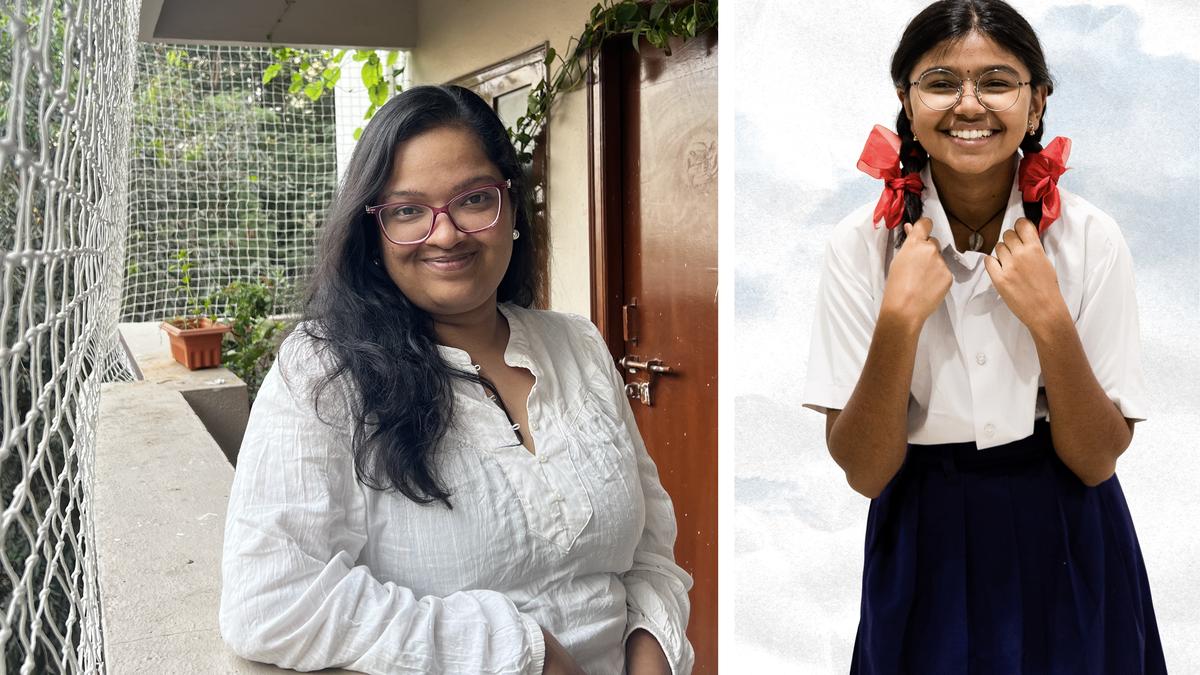
How ‘Gandhi Tatha Chettu’, a crowdsourced Telugu indie film, came to be
The Hindu
Director Padmavathi Malladi on the making of ‘Gandhi Tatha Chettu’, a crowdsourced Telugu indie film
At the Minsk International Film Festival 2024 in Belarus, the audience erupted in cheers when the Telugu feature film Gandhi Tatha Chettu was declared the Best Film by the jury. For its writer and debut director, Padmavathi Malladi, it was a surreal moment. A few minutes later, the film’s name was announced again, leaving her puzzled. Gandhi Tatha Chettu also won the Best Film Award in the audience choice category. “It was a validation of all our efforts,” she recalls during our meeting at a cafe in Hyderabad. The film, set to release in theatres on January 24, began as a crowdfunded indie project. It narrates the story of a teenage girl named Gandhi, who imbibes Gandhian principles from her grandfather and does everything in her power to protect a tree from being felled.
The film stars Sukriti Veni Bandreddi, daughter of renowned director Sukumar, along with Ananda Chakrapani, Rag Mayur, and others. After watching the final cut, Sukumar encouraged Padmavathi to submit the film to international festivals. “I was deeply moved when some audience members in Belarus told me they connected with the idea of non-violence toward people and the environment,” Padmavathi shares. “They spoke about the relevance of non-violence, especially at a time when Ukraine and Russia are at war.”
The idea for Gandhi Tatha Chettu originated when Padmavathi heard a story from her friend and screenwriter Venkat Karnati. “He didn’t pursue the story, but it got me thinking,” she says. “I started writing about a grandfather and a grandson, but then I wondered — why not a granddaughter? Why can’t Gandhi be a girl?”
Padmavathi has been a screenwriter for over a decade, contributing to projects such as Chandra Sekhar Yeleti’s Manamantha, Nag Ashwin’s Mahanati, Charukesh Sekar’s Ammu, and Surya Manoj Vangala’s web series Brinda, among others. She wrote Gandhi Tatha Chettu sporadically, whenever inspiration struck. “I was under no pressure to complete it within a specific timeframe,” she recalls.
Initially content as a screenwriter, Padmavathi had no aspirations of directing. “But as the story evolved, I felt an urge to direct it. A director’s first film usually comes from a place of innocence, free from commercial compulsions,” she explains. Around that time, Padmavathi lost her parents and decided to channel her grief into the film, finding it the best way to heal.
Although she had experience on film sets as a writer, her role had been limited to interacting with actors about scenes and dialogues or coordinating dubbing sessions. Direction, however, meant managing multiple departments, planning workflows, and solving daily challenges. To prepare, Padmavathi sought guidance from veteran filmmaker Singeetham Srinivasa Rao. “He gave me a two-day crash course in direction, and I followed all his advice. In his prime, he directed big-budget films in short timeframes. He taught me that direction is all about planning, people management, and making the right choices for the film.” Additionally, Padmavathi directed a short film to gain hands-on experience.
The road to producing Gandhi Tatha Chettu was far from smooth. Nearly 18 production houses rejected the script, calling it commercially unviable. However, Padmavathi’s friend, Sesha Sindhu Rao, believed in the story and volunteered to produce it. “But she had only ₹5,000,” Padmavathi laughs. Sindhu approached Cinema Stock Exchange, a U.S.-based crowdfunding platform. The film’s budget was estimated at ₹85 lakhs. “The platform has a policy that the full amount must be raised within a set timeframe, or the money is returned to investors. Fortunately, we hit our target on the last day, raising ₹75 lakhs, with the remaining amount going toward transaction fees.”













